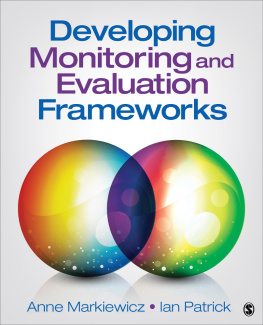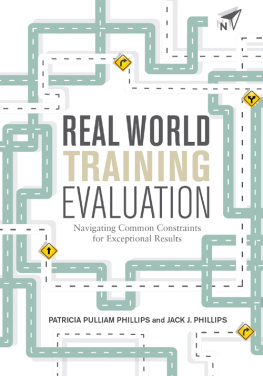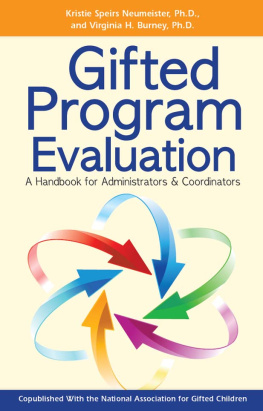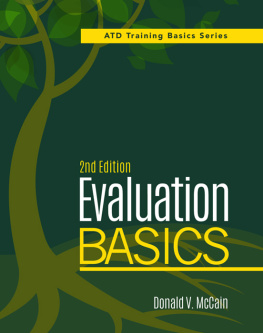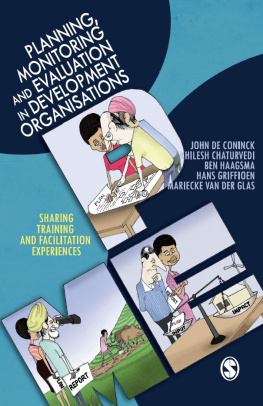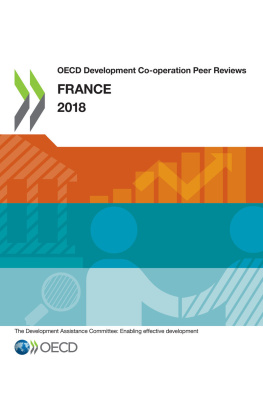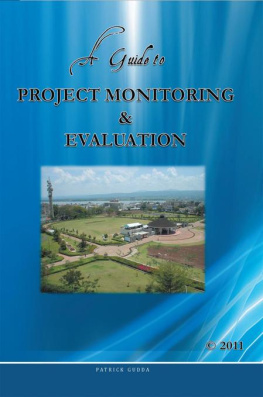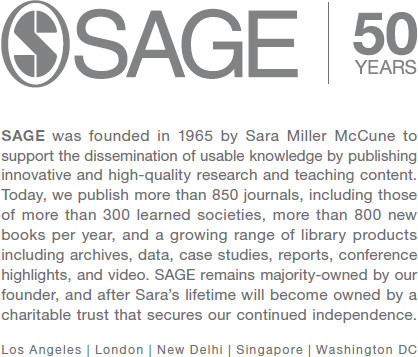Developing Monitoring and Evaluation Frameworks
Developing Monitoring and Evaluation Frameworks
- Anne Markiewicz
- Anne Markiewicz and Associates
- Ian Patrick
- Ian Patrick and Associates
FOR INFORMATION:
SAGE Publications, Inc.
2455 Teller Road
Thousand Oaks, California 91320
E-mail: order@sagepub.com
SAGE Publications Ltd.
1 Olivers Yard
55 City Road
London EC1Y 1SP
United Kingdom
SAGE Publications India Pvt. Ltd.
B 1/I 1 Mohan Cooperative Industrial Area
Mathura Road, New Delhi 110 044
India
SAGE Publications Asia-Pacific Pte. Ltd.
3 Church Street
#10-04 Samsung Hub
Singapore 049483
Copyright 2016 by SAGE Publications, Inc.
All rights reserved. No part of this book may be reproduced or utilized in any form or by any means, electronic or mechanical, including photocopying, recording, or by any information storage and retrieval system, without permission in writing from the publisher.
Printed in the United States of America
ISBN 978-1-4833-5833-8
This book is printed on acid-free paper.
Acquisitions Editor: Helen Salmon
eLearning Editor: Katie Bierach
Editorial Assistant: Anna Villarruel
Production Editor: Bennie Clark Allen
Copy Editor: Michelle Ponce
Typesetter: C&M Digitals (P) Ltd.
Proofreader: Wendy Jo Dymond
Indexer: Wendy Allex
Cover Designer: Michelle Kenny
Marketing Manager: Nicole Elliott
Detailed Contents
Preface
The evaluation literature contains many excellent guides to thinking about the nature of evaluation and provides strong complementary advice on the methods and techniques that are used in practice. An area of less attention, which this text is intended to address, relates to the planning that is required to provide evaluation with an appropriate focus and guide its conduct through a range of stages and steps. While the practice of evaluation is often claimed to be partly an art drawing deeply on the insight and experience of the evaluator, it is also a highly organized, sequenced, and methodical undertaking. This text provides guidance to the planning that is required to produce high quality evaluation, incorporating routine monitoring, and offers readers a structured, staged approach to this undertaking.
Many observers have commented on the historically weak relationship that exists between monitoring and evaluation functions. They are often treated like estranged relations, kept apart and treated separately. Monitoring and evaluation may be undertaken by different personnel and different sections within a program or organization, with the results of both streamed separately and not considered together. Such practice represents a weakness and potential loss to the ability to manage programs effectively. In response, this text aims to draw attention to, and integrate the role of monitoring within the broader field of evaluation practice. As demonstrated in the context of the evaluation of programs, both monitoring and evaluation functions have vital and complementary roles to play. Put simply, monitoring relates to the ongoing checking of progress, while evaluation involves deeper, periodic assessment of results. For a program, it makes perfect sense to combine both perspectives to attain the most complete view of its performance. This represents the intent of this textto provide guidance for the development of an integrated plan for the monitoring and evaluation of a program or related initiative. In practice, such a plan is usually referred to more formally as a Monitoring and Evaluation Framework. The use of the term Frameworkis apt given the range of different sections and tools of which it is typically comprised.
The development of a Monitoring and Evaluation Framework is becoming increasingly recognized as an important initial step in establishing arrangements to determine the performance of a program.

